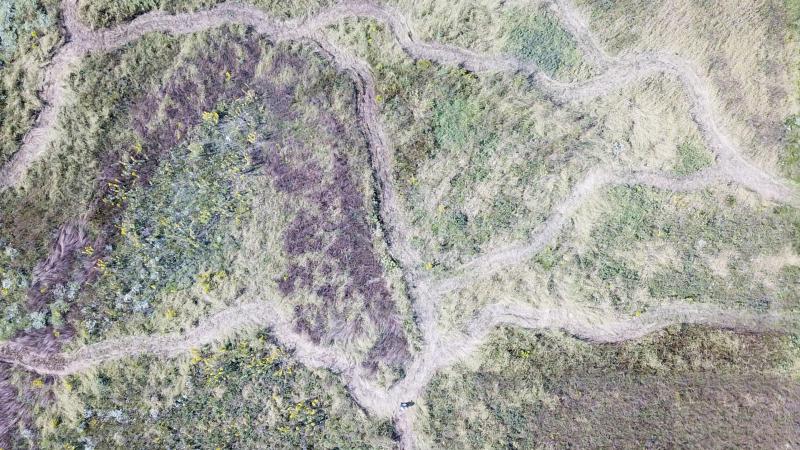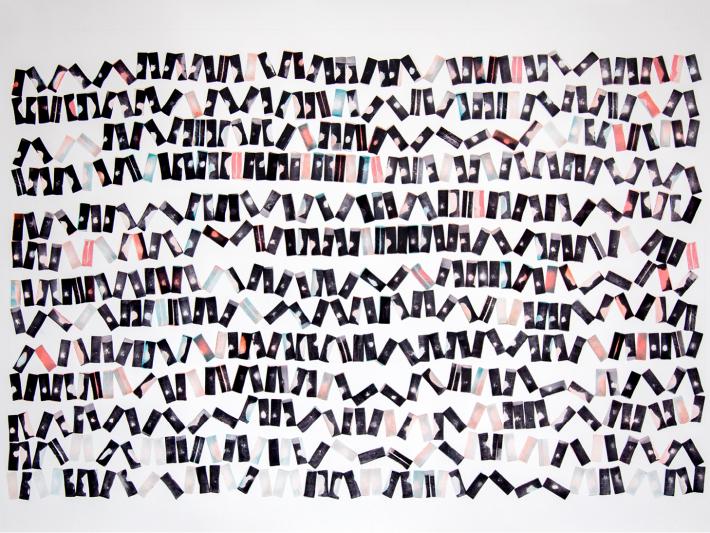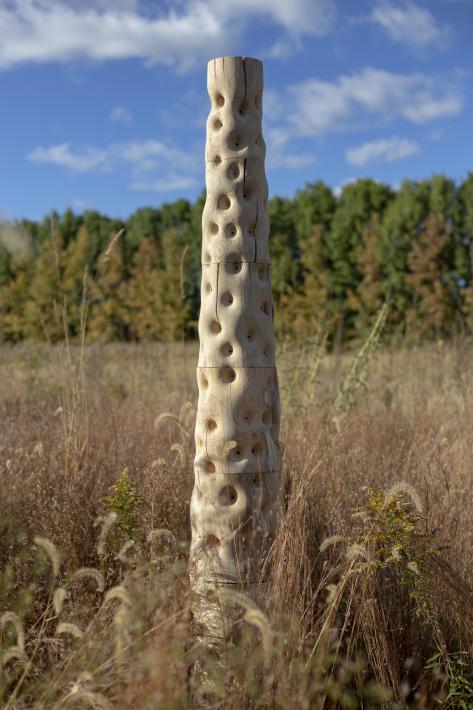Jenkins and Sutton Awarded the 2022-2023 Rome Prize for Landscape Architecture
Assistant Professor of Landscape Architecture Katherine Jenkins and Clinical Assistant Professor of Landscape Architecture Parker Sutton have been awarded the 2022-23 Rome Prize for Landscape Architecture. Their research project “Roman Aesthetics of Care” will examine how systems of Roman landscape maintenance inform Rome’s landscape identity. The American Academy in Rome has awarded the Rome Prize for over a century to support innovative and cross-disciplinary work in the arts and humanities.
Roman Aesthetics of Care
Many landscapes in the quarantine period took on new appearances in the face of neglect. In Rome, an absence of foot traffic and the suspension of public maintenance programs gave the city’s cobbled piazzas a verdant wash. The aesthetic of these new landscapes was an affront to some, while others rejoiced in the lush if weedy, “naturalness.” The same plants that signal municipal failure in cosmopolitan urban contexts, however, are not only tolerated at ancient cultural sites but are often viewed romantically in the way that they conjure a Virgilian past that is central to Rome’s self-conception. The project goal is to examine how systems of Roman landscape maintenance are integral to the preservation, adaptation, and commodification of Rome’s landscape identity. We will explore the extent to which Roman aesthetics of care are culturally contingent—how they are driven by standards of beauty, infrastructural capacities, and technocratic will.
“Among the reasons we are so interested in the aesthetics of care, is that we often privilege the act of creation at the expense of maintenance,” said Sutton. “And yet, in landscape architecture, the maintenance phase is typically very long and demands massive energy and cost inputs. To not think of this period as an opportunity for design is not only wasteful, in our view, but limits the landscape’s ability to adapt to climatological pressures.”
Jenkins’ and Sutton’s interest in the role and design possibilities of landscape maintenance are reflected in their work at Present Practice and at the Knowlton School. “I have been experimenting with alternative maintenance schemes in my practice in Columbus,” said Jenkins. “Since 2019, I have been transforming an industrial soybean field into a biodiverse meadow using low cost, low maintenance techniques.”
For the past two years, Sutton has taught the Midwestern Aesthetics of Care studio, which asks students to develop radical new systems of care that reduce carbon inputs, enhance biodiversity, and shift public expectations for the way landscapes should look and perform. “The goal of the studio is to recast landscape maintenance from a set of rote operations that perpetuate existing conditions to something with the agency and latitude to transform landscapes,” added Sutton.
Jenkins and Sutton currently serve as Resident Directors of the Knowlton School Rome Program and have led Ohio State students to the city to study architecture and design. Their prize fellowship will provide a residency in Rome and the opportunity to explore European cultural norms around landscape aesthetics and expand the dialog around U.S. approaches.
“Over the course of our time there, we began to notice the broad spectrum of care regimes that exist across Roman landscapes, from wildflower meadows at Hadrian’s Villa to unkempt and semi-wild stretches of public parks to the right-angled/pruned hedges of mannerist gardens,” said Jenkins. “These observations were an important inspiration for our Rome Prize proposal.”
“In the Midwest, there’s a narrow bandwidth of maintenance practices,” commented Sutton. “Agricultural, domestic, public, and private landscapes are often defined by care regimes of suppression and eradication. In Rome, there’s a much broader range of what’s acceptable. This is what we are interested in researching, documenting, and writing about, and why we want to go back.”
Jenkins and Sutton are cofounders of the design-research studio, Present Practice. As Present Practice, they were Lead Instructors and Artists in Residence at the Overlook Field School in 2017 and 2018 and Artists in Residence at the Center for Land Use Interpretation (CLUI) in 2015. They are also recipients of a MacDowell Fellowship in Architecture.




